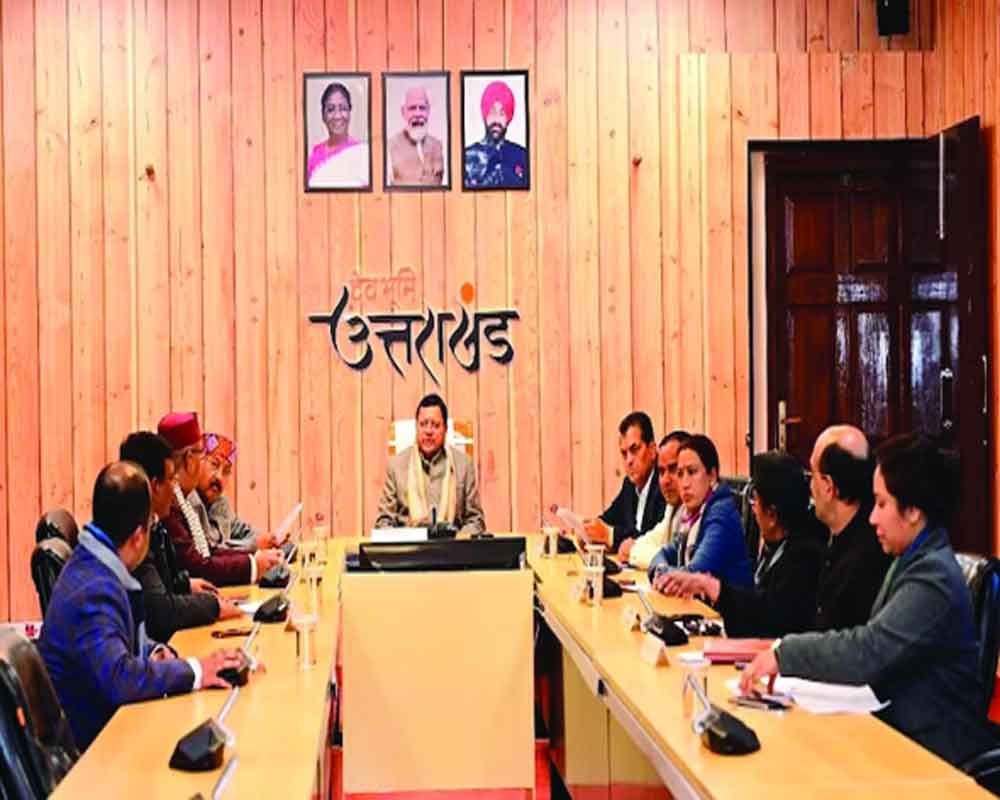An egalitarian society
Uttarakhand Cabinet clears UCC final draft, paves the way for historic implementation of an old dream
In a momentous decision, the Uttarakhand Cabinet has approved the final draft of the Uniform Civil Code (UCC), marking a historic moment for the State and the nation as a whole. Uttarakhand is poised to become the first State in India since Independence to implement UCC. This development holds profound implications for the socio-legal landscape of the State and is rooted in a historical context that spans the ev006Flution of legal frameworks in India. The UCC concept traces its roots back to the framers of the Indian Constitution, who envisioned a legal framework that would promote equality and justice among diverse communities. However, implementing it has been a longstanding challenge, given the diverse religious and cultural practices prevalent in the country. The directive principles in the Constitution, under Article 44, encourage the enactment of a UCC, but its realisation has been delayed for various reasons. Uttarakhand's move to implement the UCC is a stride towards harmonising personal laws across religions. The UCC's implementation has been marred in controversy as many influencers felt that it would infringe upon the religious rights of minority communities who have a very different set of religious tenets than the majority Hindu community. However, it would be fostering equality on many counts. One of the primary objectives of the UCC is to promote gender equality by standardising laws related to marriage, divorce, inheritance and other personal matters.
The UCC's implementation in Uttarakhand is expected to provide women with equal rights and opportunities, irrespective of their religious affiliations. This move towards legal uniformity is intended to simplify the legal framework and ensure equal protection under the law to every Indian, regardless of their religious background. However, as India is a diverse nation, the UCC's implementation may inadvertently bump into deeply ingrained cultural and religious practices. Besides, critics contend that it could lead to the erosion of personal freedom, particularly in matters of marriage, divorce and inheritance. The biggest issue is that the enforcement of UCC, especially without adequate consensus and understanding, may lead to social unrest. Communities may feel marginalised or excluded if their distinct legal traditions are not adequately represented in the uniform code. It has the potential to create divisions rather than fostering the unity that the UCC aims to achieve. The complexities involved in reconciling different legal traditions and ensuring a seamless transition could lead to legal ambiguities, confusion and unintended consequences. The Government must allow a fair debate to assuage the fears of the minorities. There are concerns that the implementation of UCC might disproportionately affect minority communities. It remains to be seen how the UCC is implemented on the ground in Uttarakhand. It should be seen as a pilot project and work in progress rather than a definitive move.
